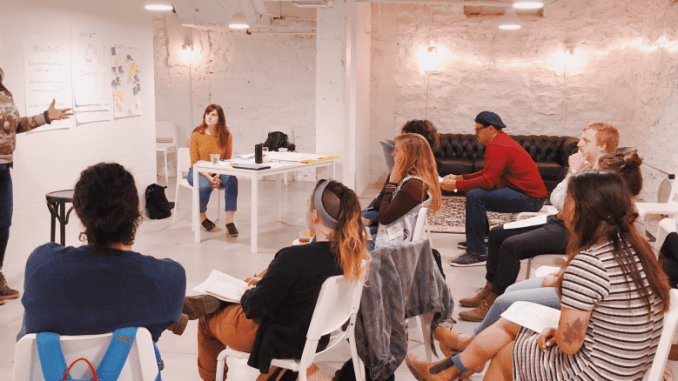
An anti-racism training, led by Cecilia Belser-Patton and Jaime Rovenstine, explores how to identify and fight racism in the coffee industry.
BY UMEKO MOTOYOSHI
SPECIAL TO BARISTA MAGAZINE
Photos by Umeko Motoyoshi
Monarch Coffee in Kansas City, Mo., hums with activity, warm natural light glowing off the circular bar. Downstairs, fairy lights and white walls create an airy and open environment. On Saturday, March 16, 15 coffee professionals—most white-identified or non-Black people of color—trekked to Monarch from the United States Coffee Championships. After enjoying coffee, shrubs, and pastries, the group descended to Monarch’s fairy-lit space downstairs.
Led by Cecilia Belser-Patton—of The Open Table and Just Systems—and Jaime Rovenstine—co-owner of Monarch Coffee and trainer with The Open Table—the workshop opened with a reading from The Chocolate Barista, a blog platform created by Black coffee professional Michelle Johnson.
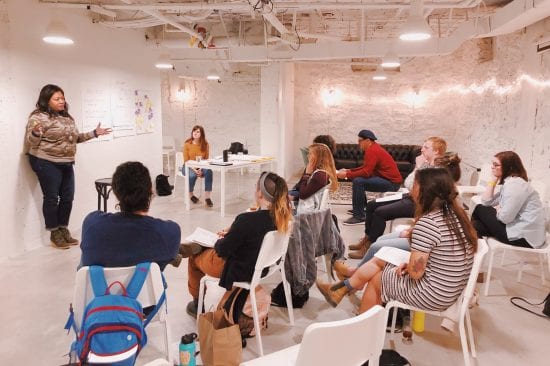
The article—read aloud by Cecilia and written by Zael Ogwaro—described the daily micro-aggressions Zael experiences as a Black barista. “I often [feel] I’m in the sunken place,” they write. “And when I speak out against actions of others, I realize I just might be.”
Zael’s piece grounded the event, reminding participants it is crucial for white and non-Black PoC to engage in anti-racist work. As Zael writes, “Difficult conversations regarding race, gender, and sex cannot be a one-sided affair. Learning about your privilege as a white cis woman/man must be a personal quest—not every black person’s obligation. You are continually asking for emotional labor from people of color, while failing to realize it.”
After Zael’s piece, the workshop moved into defining racism. Participants wrote short definitions of racism on Post-Its, and shared their notes together on the wall.
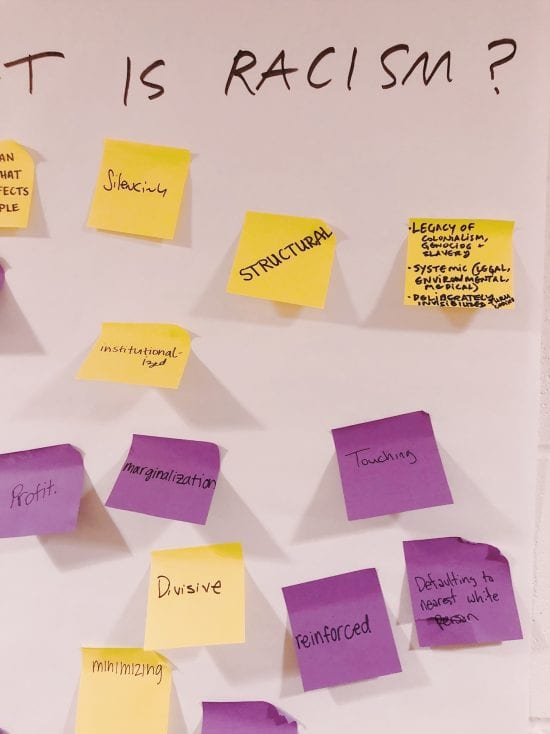
Structural. Touching. Reinforced.
Legal, environmental, medical. Defaulting to the nearest white person.
Institutionalized. Silencing. Profit.
Following a collaborative discussion, Cecilia and Jaime shared the definition of racism they regard as most relevant: race prejudice combined with misuse and abuse of systemic and/or institutional power.
It was noted that many folks struggle to develop a systemic definition of racism. This can be a particular challenge for people who have not been racialized as anything other than white. Because this demographic hasn’t experienced systemic racialized harm, its constituents often think of racism as an individual character flaw. The word brings to mind singular instances of prejudice—a racist uncle, or an overheard comment, or extreme outliers like the Ku Klux Klan.
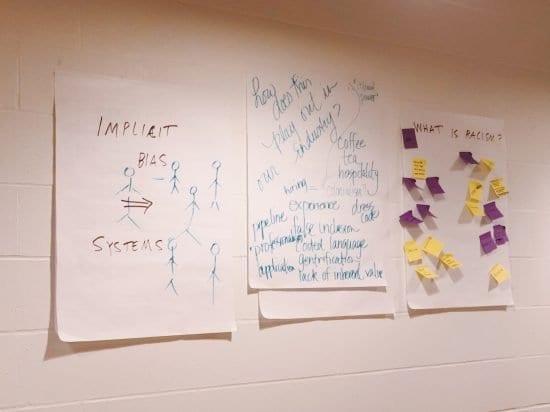
Many coffee professionals are accustomed to conceptualizing structural dynamics, particularly as they pertain to the coffee value chain. Cecilia remarked that the guests in attendance already held a structural, rather than individual, understanding of racism.
By offering granularity around the functioning of racism, Cecilia and Jaime connected new learnings with the structural issues in coffee brought by the group. These issues included the colonial systems of green coffee buying, and financial accessibility to specialty coffee from a consumer perspective. The second half of the training explored solutions, defining key components of anti-racist thought and practice.
Much of the conversation focused on hiring and promotion. Participants discussed the ways that “professionalism” is often racialized—a codification of language, appearance, and modes of being in the world that most frequently are embodied by white people. As an example, Cecilia, a Black woman, shared that her professionalism is not held in the same regard when she wears her hair natural.
The workshop also spoke to coded language, and the unwelcoming elements of what should be hospitality environments. People of color are vastly underrepresented in U.S. specialty coffee, yet cafés continue to hire majority white and white-passing folks. This cycle creates environments where people of color don’t see others who look like them, and can feel like the space is not for them—as a customer or as a potential employee. Jaime, as the owner of a café, also noted that requiring barista experience is a huge barrier to entry—and often it’s seemingly enforced to a greater degree with applicants of color.
Throughout the training, participants took heavy notes and practiced active listening. Cecilia and Jaime’s supportive teaching environment enabled their guests to stay open and vulnerable in difficult conversations, as the group reflected on what they could change about their personal and professional practices.
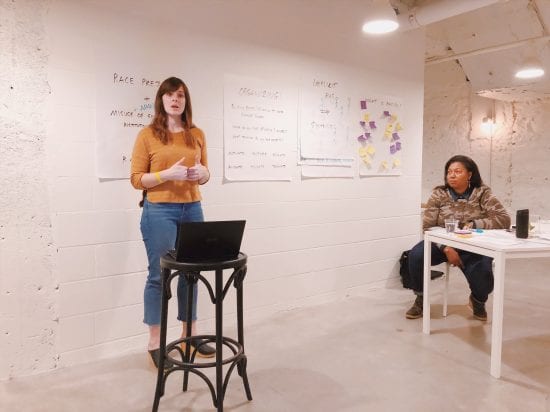
Said Cecilia, “Oftentimes when we meet groups, they are new to this work, and so we have to be aware of how we are presenting. And it was a luxury to not have to be concerned about that in this group.” She described the norms they usually encounter, naming white fragility and defensiveness as common responses. “We’re asking them to think about a new normal—that they might not be prepared to think about.”
Jaime added, “This was a group of people who were already actively engaged and wanted to know how they could work on this in their own communities.” However, the group shared an important similarity with others—they left the workshop motivated to make change on a personal and a systemic level.
Built as a conversation-starter, the workshop laid a clear and cohesive foundation for attendees wanting to grow in their anti-racist practice. As Sandra Elisa Loofbourow, tasting room director at Royal Coffee, returned to USCC, she reflected on the day’s training: “It was a confirmation that we have to question every system that we’re a part of, and constantly seek out new ways to change these rubrics that dominate our society.”

ABOUT THE AUTHOR
Umeko Motoyoshi is a freelance writer, and founder and CEO of Umeshiso.com.

